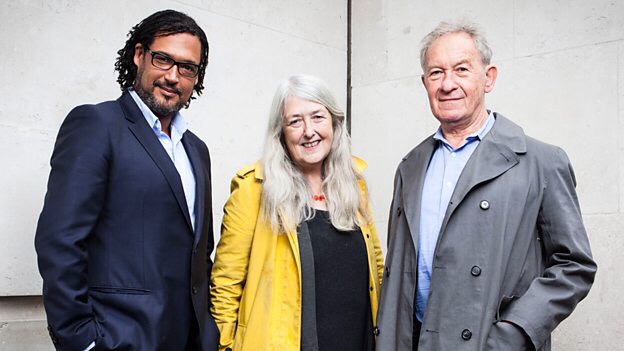The BBC today announced the commission of Civilisations, a major new ten-part series telling the story of art from the dawn of human history to the present day, for the first time on a global scale.
It is now nearly half a century since Kenneth Clark’s series Civilisation thrilled audiences with its authoritative interpretation of the glories of Western art. Inspired by that groundbreaking programme, the new series of Civilisations on BBC Two will introduce a new generation to the great masterworks of beauty, ingenuity and illumination created across the continents.
Civilisations will explore the visual culture of societies from around the globe, revealing alongside the magnificent objects made in the West the wealth of treasures created by other cultures, from the landscape scrolls of classical China and the sculpture of the Olmecs to African bronzes, Japanese prints and Mughal miniatures.
Tony Hall, Director-General of the BBC, says: “I remember the impact Civilisation had on me when I was in school: it was the start of a lifelong passion for the arts. Inspired by that great programme of the past, we want to excite a new generation. We want to show them the power of art and creativity across the world – from the dawn of civilisation to today. I’m thrilled that Simon, Mary and David, three outstanding broadcasters, have accepted the challenge.”
Simon Schama says: “In the half century since Kenneth Clark made his great television series Civilisation, the necessity of art to the human condition has only grown even more emphatic; even more central to the way the world lives. Created in shanties and barrios, in studios and on streets, it has become the defining status of the rich, the public pleasure of everyone else. It is the target of those who wish to destroy it, at the same time as it is valued and desired above all other products of human ingenuity. Beyond anything money and political power can do, the arts remain the true measure of our humanity and that is why I am so looking forward to presenting this ambitious new series.”
Mary Beard says: “I remember watching the original Civilisation with my Mum and Dad, and it feels pretty humbling now to be on the other side of the camera. But for me it’s also exciting that in Civilisations we will be seeing ancient Greece and Rome in the context of early art across the globe. I’m particularly looking forward to exploring some big questions. What was early art for? How and why did early people choose to represent their gods – or themselves?”
David Olusoga says: “It’s an incredible honour to be working alongside Simon and Mary, two of the nation’s greatest historians and broadcasters. I’m also thrilled to be a presenter on a series that’s part of a great tradition of arts programming on the BBC. When I was growing up on a council estate my family didn’t have the money to visit galleries or museums, but my mother was able to open up the worlds of art and culture to me through documentaries on the BBC, programmes that broadened my horizons and transformed my view of the world. Civilisations is the next chapter in that tradition of TV with the power to change lives.”
Civilisations will be shot around the globe, filming in Europe, Asia, Africa and the Americas. Alongside the presenters it will also speak to local experts, artists and practitioners, interviewing those who live with and love the art as well as those who make or study it.
Civilisations will use the latest filming technology: this includes macro photography and the most state-of-the art drone and camera movement technology, which will allow viewers to immerse themselves in the extraordinary locations across the world and to see art in new ways – bringing remote objects up close, and celebrating detail, craftsmanship and perfection as never before.
Filming begins in 2016 and the series is expected to air on BBC Two towards the end of 2017.







